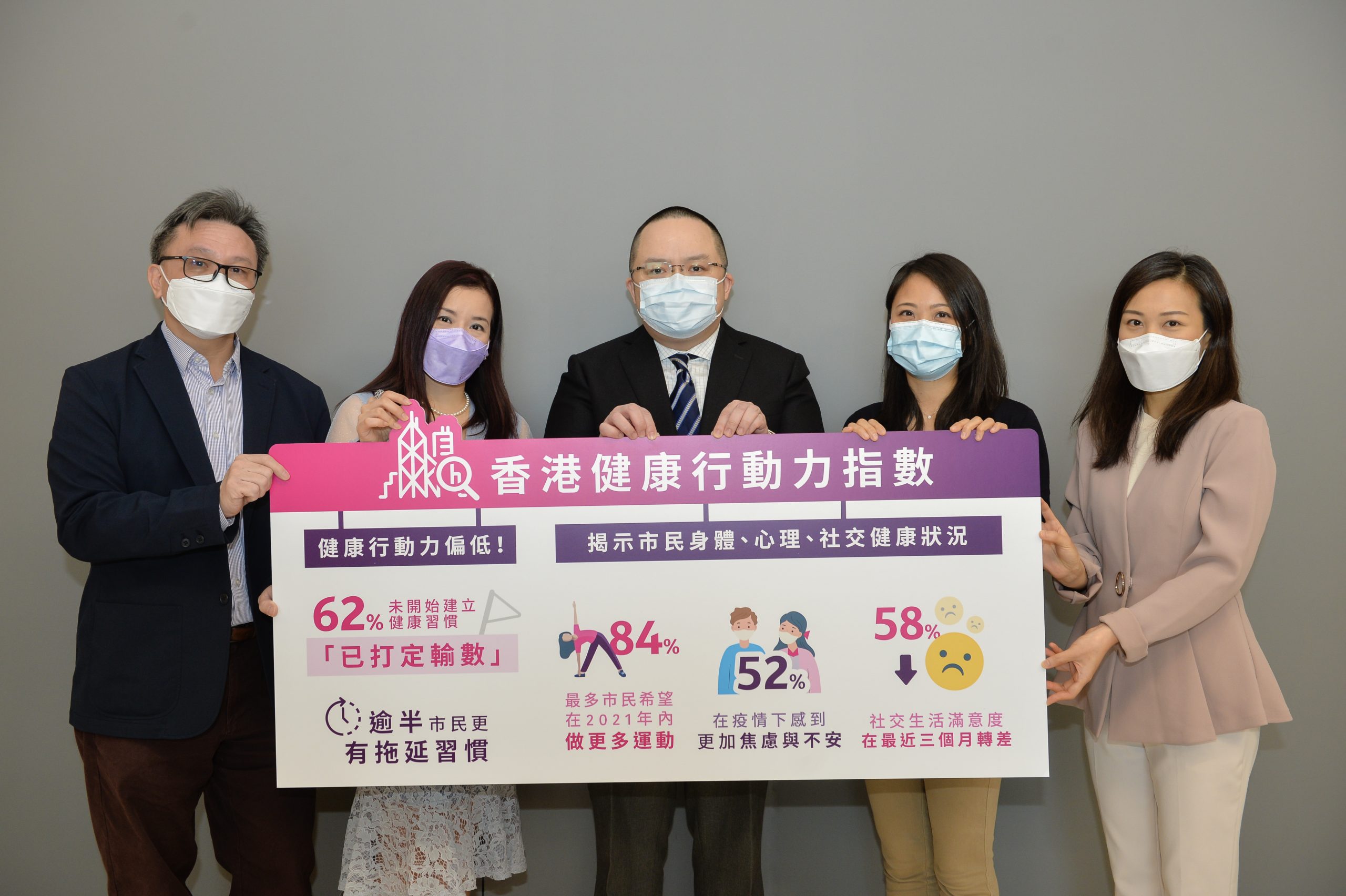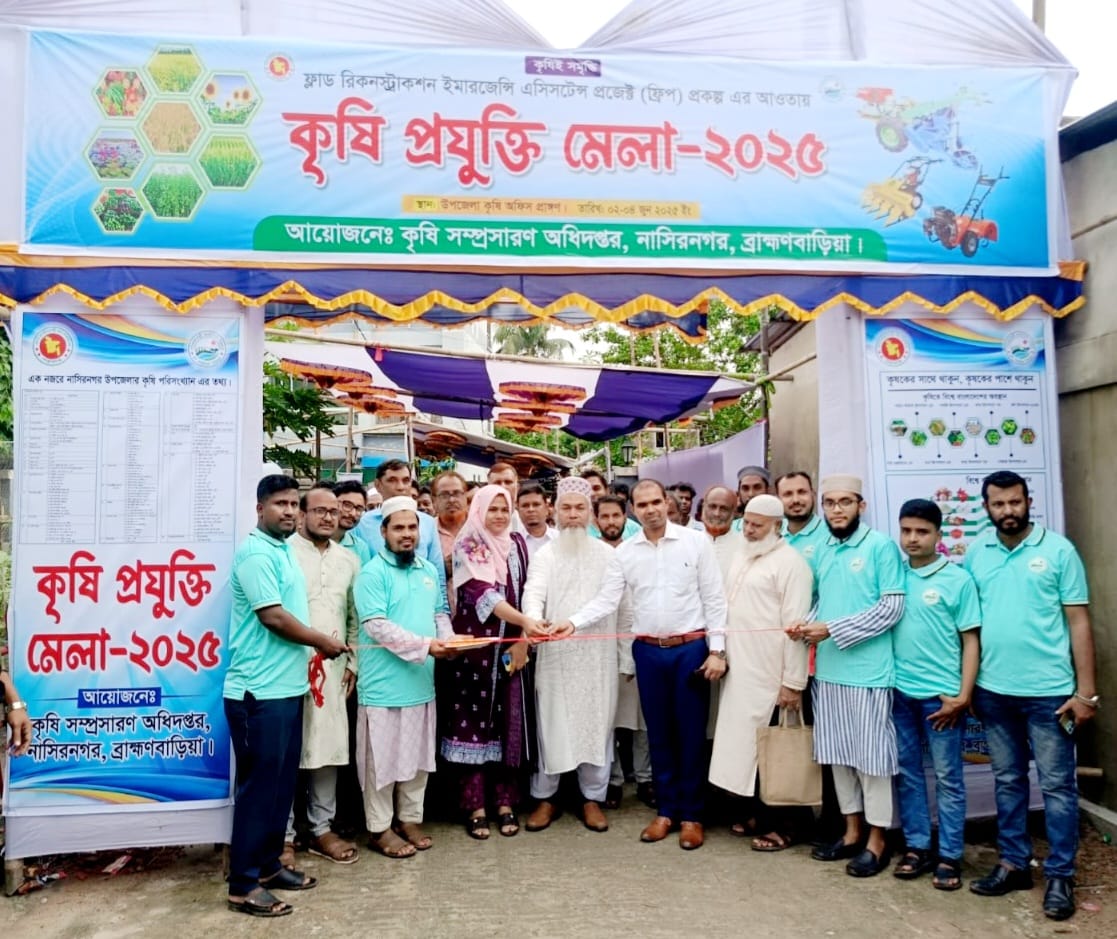Reckitt Benckiser Launches The First “Hong Kong Wellness in Action Index” To Guide Citizens Taking Action On Their Wellness

- আপডেট টাইম : ১০:২৩:৫৩ পূর্বাহ্ন, মঙ্গলবার, ২ ফেব্রুয়ারী ২০২১
- / ৩৩৭ ১৫০.০০০ বার পাঠক
somoyerkontha -reporterOver 60% of respondents have low confidence in establishing new health habits even before starting Experts’ advice to overcome procrastination towards building a healthy lifestyle The pandemic affects citizens’ social wellbeing but has also brought positive changes |
| HONG KONG SAR – Media OutReach – 2 February 2021 – Many people will set new personal goals in the Lunar New Year. To better support the public in building effective health habits, Reckitt Benckiser Hong Kong Limited (RB) is revealing the findings from its recently-commissioned survey, named the “Hong Kong Wellness in Action Index”[1]. The longitudinal survey aims to understand local citizens’ levels of satisfaction on their physical, mental and social wellbeing, as well as their practices in building health habits.
From left to right: Mr. Samuel Wong, representative from FRC (Hong Kong) Ltd; Ms. Felicia Lau, Registered Clinical Psychologist; Dr. Gregory Mak, Psychiatric Specialist; Ms. Wendy Shum, Registered Physiotherapist and Ms. Natalie Yuen, RB’s External Affairs Director (HK & Taiwan) released the findings of the “Hong Kong Wellness in Action Index” Survey.
As part of an ongoing series of health insights, the survey will also cover in-depth discussions of different health topics on a regular basis, with experts from different disciplines sharing their insights on the findings while providing valuable and practical advice to the public. For this inaugural announcement, the survey looks into the impact of COVID-19 on respondents’ wellness, including challenges in maintaining healthy relationships – among couples as well as between parents and their children.
Highlights of the Survey
Give Yourself a Reason to Begin with Experts’ Wellness Lifehacks: Link
Based on the survey findings, an expert panel consisting of a physiotherapist, psychiatric specialist, clinical psychologist and social worker put together a set of tailor-made “Wellness Lifehacks” to help the public improve their physical, mental and social wellbeing.
Dr. Gregory Mak, a Psychiatric Specialist, pointed out, “The survey showed that many people have low confidence in building new health habits and are easily affected by procrastination. To tackle the issues, we propose a simple 5-step approach to help changing their mindsets at the beginning of the Year of the Ox.”
Ms. Wendy Shum, a Registered Physiotherapist, said “Many people want to start exercising during the pandemic, however, there could be ‘blind spots’ when one is starting out. For example, injuries have increased as people are doing exercises as instructed via online videos without proper supervision. With our ‘Wellness Lifehacks’, we hope to enable the public to develop healthier lifestyles in a better and safer way.”
Ms. Felicia Lau, a Registered Clinical Psychologist, added, “This survey revealed plenty of insights. For example, many respondents agreed that the pandemic made them care more about their family and friends. Thus, we recommend the public to express their care to the loved ones and keep in close contact with friends, to improve their wellbeing and enrich their social lives. We also hope to encourage them to embrace positive changes brought by the pandemic.”
Key Survey Findings
Low satisfaction levels towards social wellbeing For a score of 0-100, respondents have higher levels of satisfaction for “physical wellbeing” at 70 points and “mental wellbeing” at 64 points. “Social wellbeing” only scored low at 59 points. Nearly 60% of respondents say their satisfaction levels towards social wellbeing has declined in the past three months, which may be a reflection on the lack of social interaction brought by the pandemic.
Establishing health habits is regarded as a “lost cause” Over 90% of respondents say they are keen to develop new health habits in 2021, citing three main goals — “do more exercise” (84%), “maintain a healthy diet” (72%) and “engage in more outdoor activities” (52%). However, less than 40% of respondents have confidence in maintaining these habits. This may reflect that an inability or proper motivation to put their health habits into action, regard them as a “lost cause” even before starting.
People are plagued by procrastination More than half of the respondents admit they procrastinate and around 70% believe procrastination will have negative consequences. Respondents agree that the problem of “prolonged procrastination” should be tackled, with over 60% hoping to improve their situation.
The pandemic brings positive changes The pandemic has impacted negatively on the public’s wellbeing. The most common impacts include “more concerned about my job/financial status” (61%), “the new work- or study-from-home mode creates more pressure” (57%) and “feeling more anxious and agitated” (52%). However, there were positive changes, including “increase awareness of personal wellbeing” (80%), “care more about people around me” (76%) and “spend more time with my family” (71%).
Youngsters are less concerned about hygiene habits Over 80% of respondents believe that having good personal hygiene habits helps maintaining a positive physical and mental health. 56% of respondents aged 30 or above aim to “live a more hygienic life” in 2021, while only 38% of those aged between 12 and 29 have such a goal. This may reflect that youngsters are less concerned about hygiene issues.
Couples’ relationships are challenged during the pandemic The pandemic has affected interactions between couples and creates tension in their relationships. Around 40% of respondents with a spouse/partner believe the pandemic has “restricted my interaction with my spouse/partner”. Over 30% claim that they have “less intimate time with my spouse/partner”. A quarter of respondents also say that their relationship “has been distanced” and “have more arguments with my spouse/partner”. Expert Tips – 5 Missions to Improve the Relationship among Couples (By Psychiatric Specialist)
Challenges of parent-child relationships Around 50% of parents felt the pandemic impacted their children’s social wellbeing. More than 60% of parents expressed that studying at home has created more pressure for their children, and over 50% of them said that the pandemic has made their children feeling more anxious and agitated.
Mr. Pankaj Agarwal, Reckitt Benckiser’s General Manager Hong Kong & Taiwan, Health, said, “RB has always driven by its purpose to protect, heal and nurture in a relentless pursuit of a cleaner, healthier world, and putting customers first. As a leader in FMCG industry, we launched the first ‘Hong Kong Wellness in Action’ Index, together with the professional advice from the expert panel, we hope to leverage our trusted brands’ expertise to provide all-rounded information and practical tips to the public, helping Hong Kong citizens to take a proactive approach in kick-starting a healthier lifestyle in the new normal.”
Mr. Cyril Chung, a registered social worker, also added, “The survey gave a good representation in terms of the topics and age groups covered. It helps us better understand the community’s ability to adopt a healthier lifestyle as a whole. With the comprehensive information provided, we can offer the public with more valid recommendations.” [1] FRC (Hong Kong) Ltd, an independent research firm, was commissioned to conduct the survey in December 2020. There were 1,014 respondents, aged 12 and above. Those surveyed include 156 parents with children between 3 — 12 years’ old, and 669 respondents with a spouse/partner.
|
























